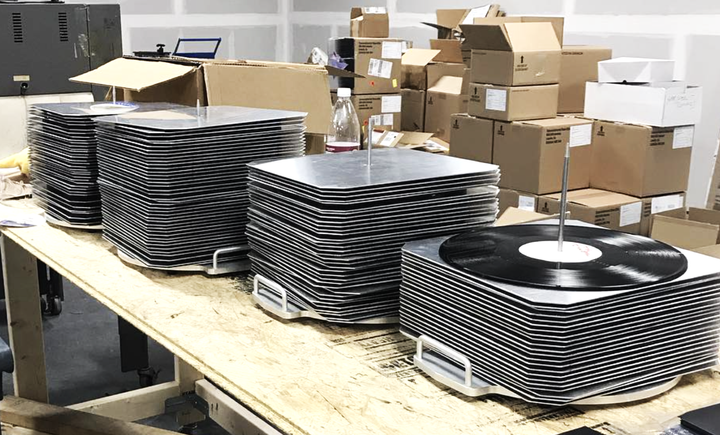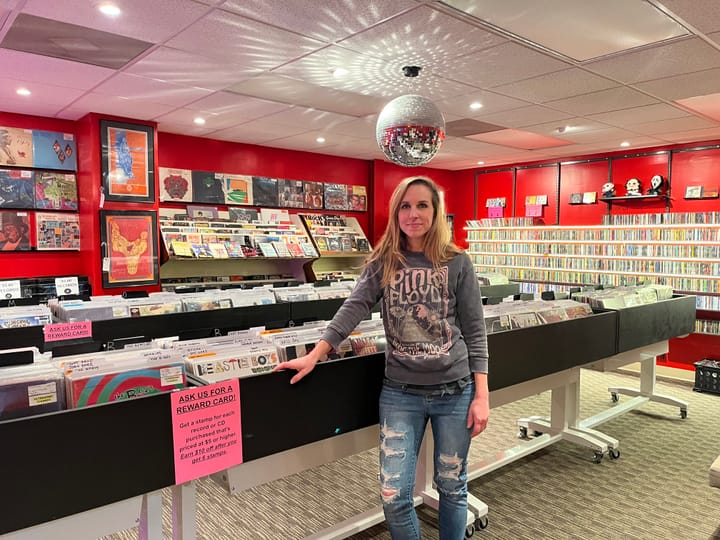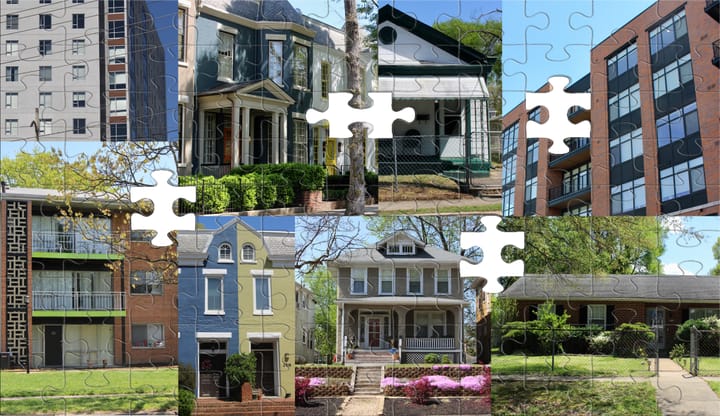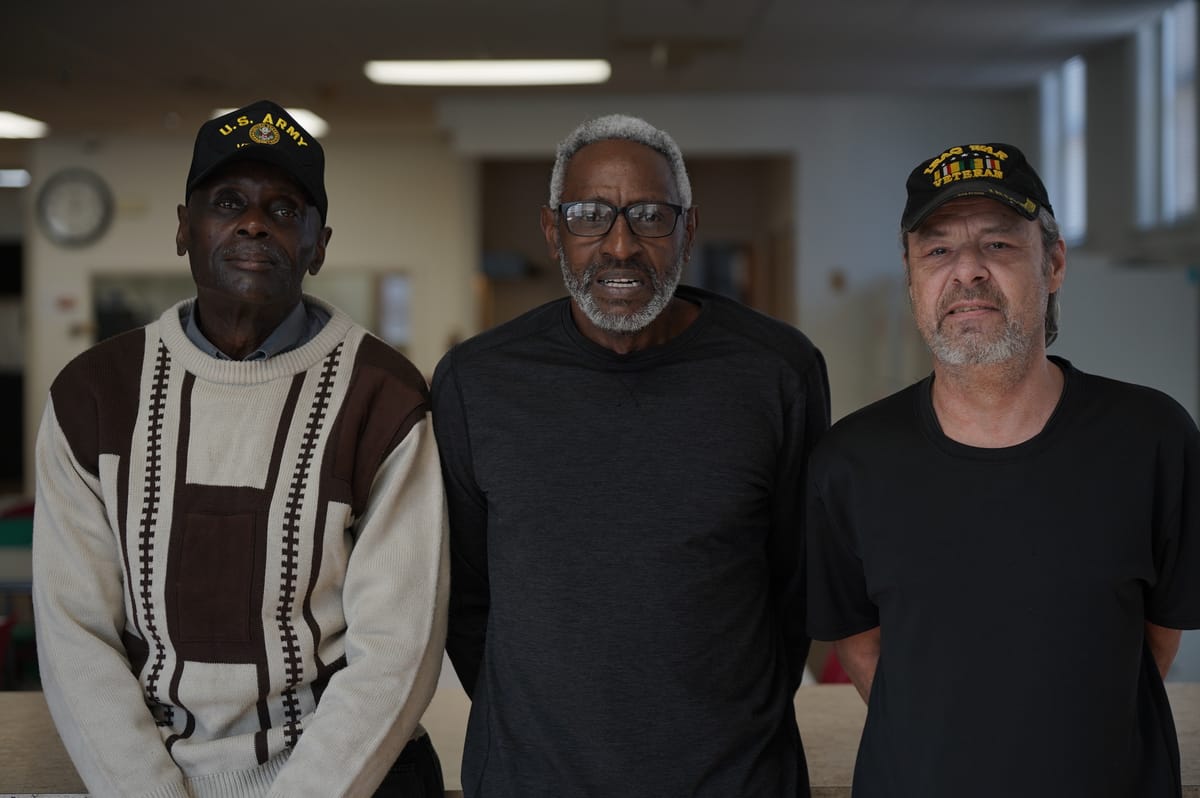
South Richmond nonprofit has helped hundreds of veterans who need housing
Mickel Hutcheson’s troubles, like so many people’s, started during the Covid pandemic. He was working as a welder in Richmond but found himself homeless — living in his two-seat Chrysler Crossfire, a 10-foot ladder hanging out the back hatch.
“I’m good at what I do,” he said, “a jack-of-all-trades.”
He was working, homeless, and not sure where to turn for help. “I didn’t want my family to know I was homeless.”
Hutcheson is a military veteran who served on active duty in the Army until 1982 and in the Reserves until 2010.
His situation worsened when his car stopped running. After being homeless for a year and a half he turned to the Department of Veterans Affairs. The VA referred him to Liberation Veteran Services (LVS), a local supportive housing program that helps homeless veterans rebuild their lives.
The nonprofit is housed in a nondescript storefront on Hull Street in South Richmond.
“I had passed by it but I didn’t know it was there,” Hutcheson recalls. Now he calls it home — for the moment. “I came here to save some money so I can get my vehicle fixed.” Next, he wants to find a place where he can live on his own.
That’s what LVS is all about. “It’s a blessing,” Hutcheson said. “They do a lot for vets. They’ll get you on a list for housing. They’ll even help you move. I’m working, saving my money.”
LVS begins by giving homeless vets a safe place to stay until they’re able to live and work independently. The vets, from every branch of the military, aren’t charged a penny — funding comes from the VA and from supporters and contributors in the community. The vets are given time to work through their challenges and re-establish their independence.
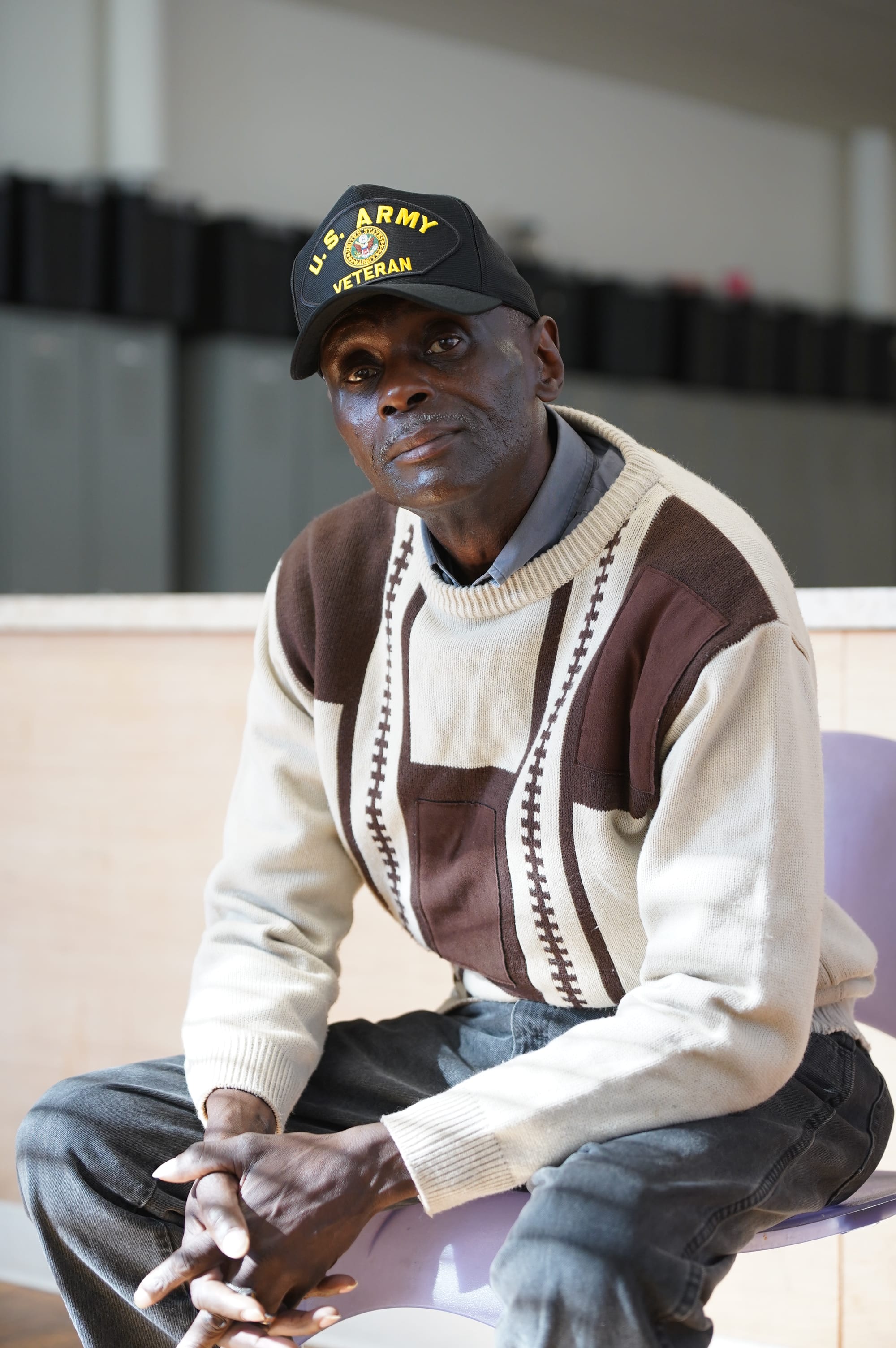
LVS offers the vets all kinds of services, either directly or through partners and contributors, including supportive housing, mental and physical health services, 12-step programs, meals and clothing, training for employment skills and financial literacy, and assistance in finding permanent independent housing.
Jay Patrick, president and CEO of Liberation Veteran Services, said the program is not just about giving a homeless vet the key to an apartment. “A person needs more than a key. We provide that key with some sustainability.”
LVS works with each of its vets to build an individual service plan — every plan is different, depending on the person’s needs. The goal is always the same: vets who a year after leaving LVS are still employed, still independently housed. At that point, Patrick days, “they no longer need a program.”
Since LVS opened in 2013, it had accepted 747 vets as of June 2024, and 86 percent were able to live independently for at least 12 months after leaving. Tracking ends after a year, though vets can always return for help if they need it. There’s even an alumni association.
Along with the tangible services that LVS offers, it also focuses on providing friendship and companionship for the vets, who are all men and who range from age 25 to 79. Most stay for six to eight months.
“This is a place designed with dignity and respect,” Patrick said. “We try to make it as warm as we can.”
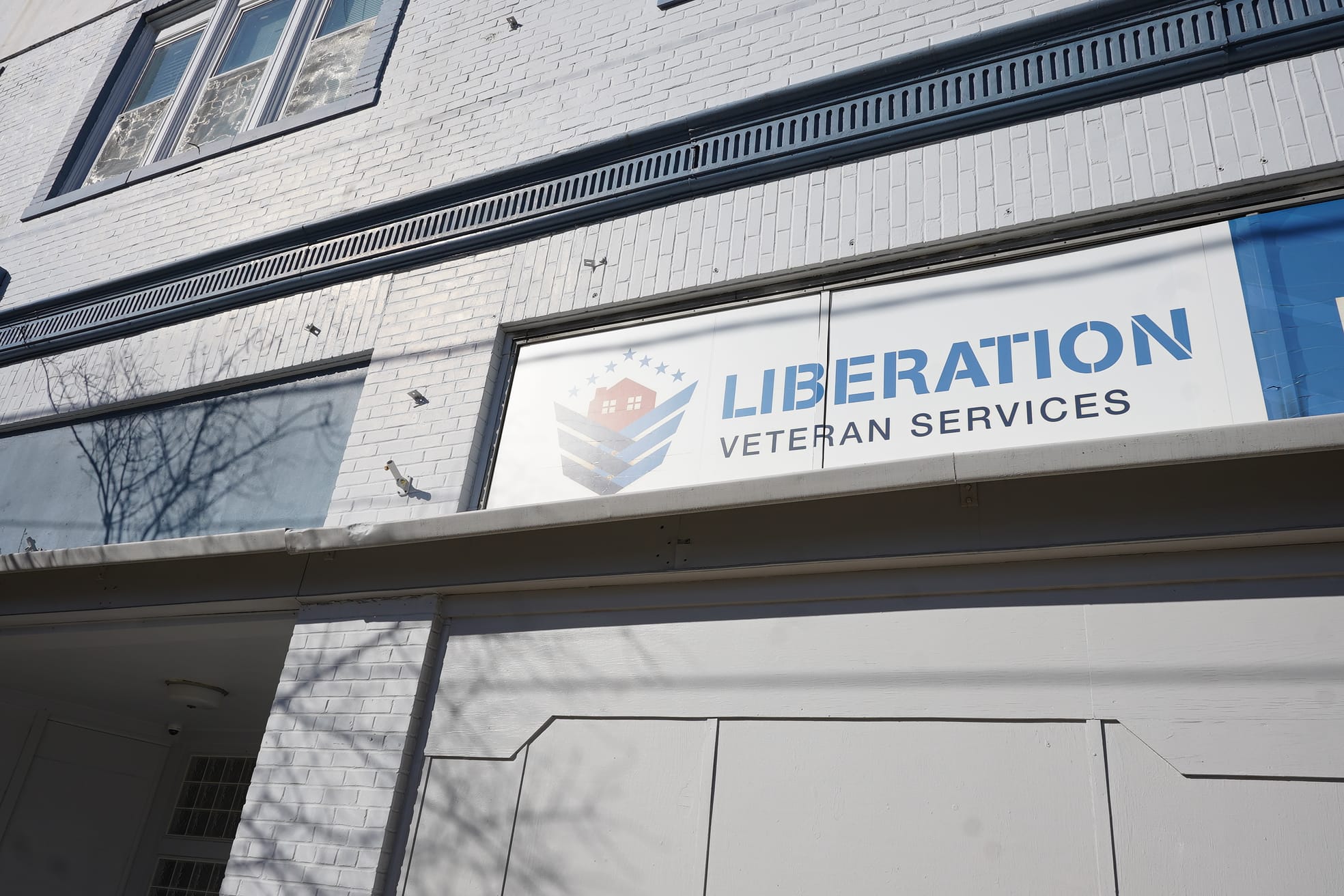
As of January 2025, LVS had 26 men staying in its upstairs living area, which resembles a clean, bright military barracks, with cots scattered in pairs among low barriers, belongings stowed neatly beneath and around the cots. Nearby, a kitchen and eating area, with an impressive row of refrigerators, gives the men space to relax when they’re not working, sleeping, or attending classes and programs. Some sleep during the day because they work nights shifts for local employers, often in security jobs.
Local churches fix hot dinners every evening.
“It’s good food,” Hutcheson said. “Thank God for the churches that donate it.”
LVS has space for as many as 38 vets at one time.
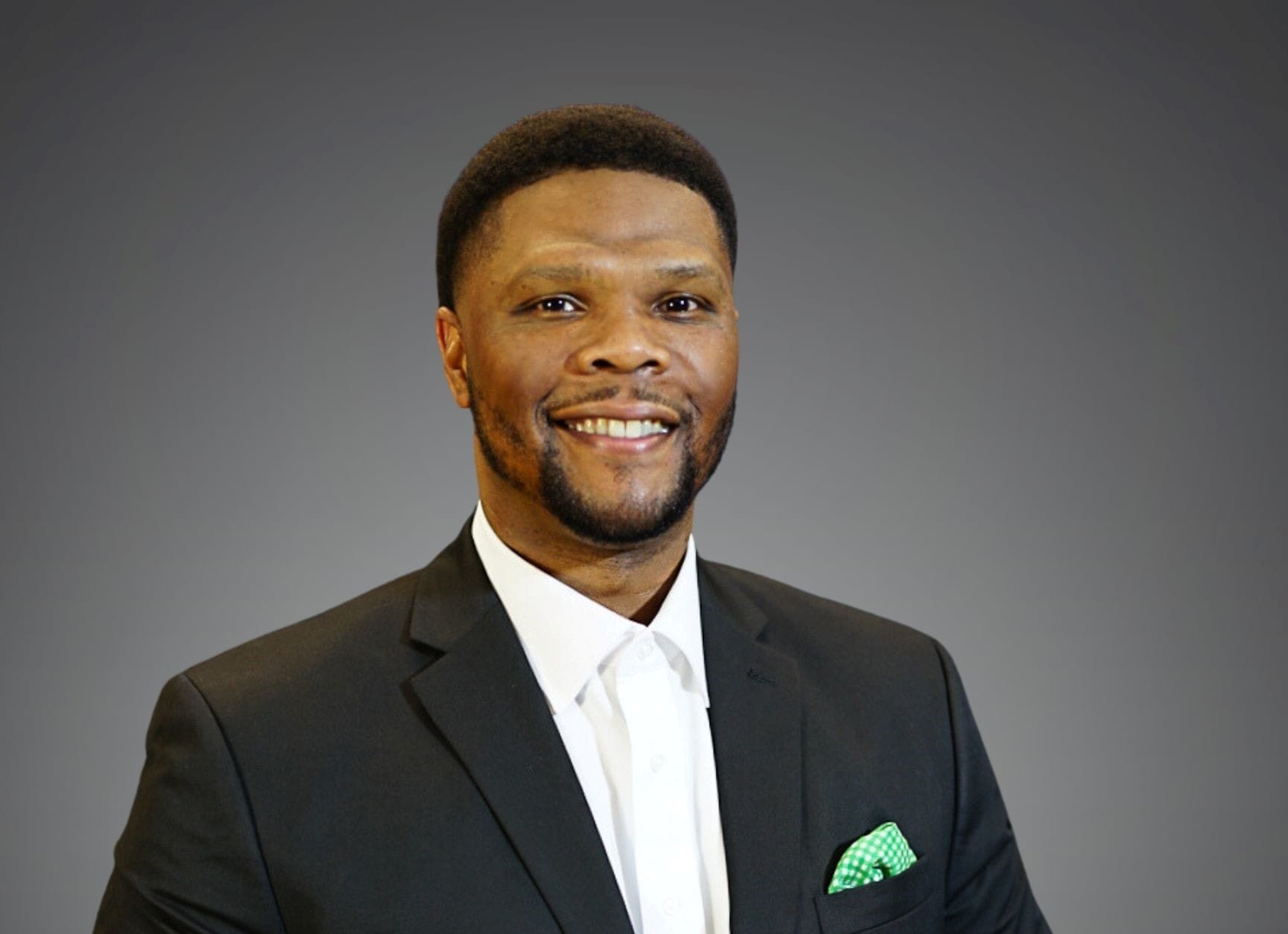
Patrick says LVS, which is a 501(c)(3) organization, serves homeless vets referred to it by the VA, and it works to accept as many as it can. “We’re a pretty low-barrier program,” although the men are expected to participate in the upkeep of the community and must be able-bodied and willing to live in a communal setting.
“Most of them come here with some skills,” said Fletcher Johnson, the LVS director of donor and community engagement. Patrick and Johnson founded LVS in 2013, after Freedom House closed — both men had worked at that nonprofit, which served Richmond’s general homeless population. LVS occupies the former Freedom House building, which was originally a South Richmond location of Thalhimer’s department store.
Keon Graves, an Army vet, was a certified athletic trainer until he fell into “hard times recently.” He has a factory job now — a night shift — and he’s living at LVS. His longer-term goal is to regain his certification in athletic training.
“I wanted to get my foot back into the door in terms of earning income,” said Graves, who describes himself as one of the younger vets living at LVS. He said LVS has been able to help him “concretely,” both in finding work and with his housing situation.
He appreciates the atmosphere at LVS. “The mood is always even-keeled.” Living among his fellow military vets, “there is this unspoken thing — everyone has that temperament. We were taught that.” Graves added that he had been unaware about many of the services out there for veterans. “My experience now is that so much is available. I had no idea something like this place was available. For me, it was a Godsend.”
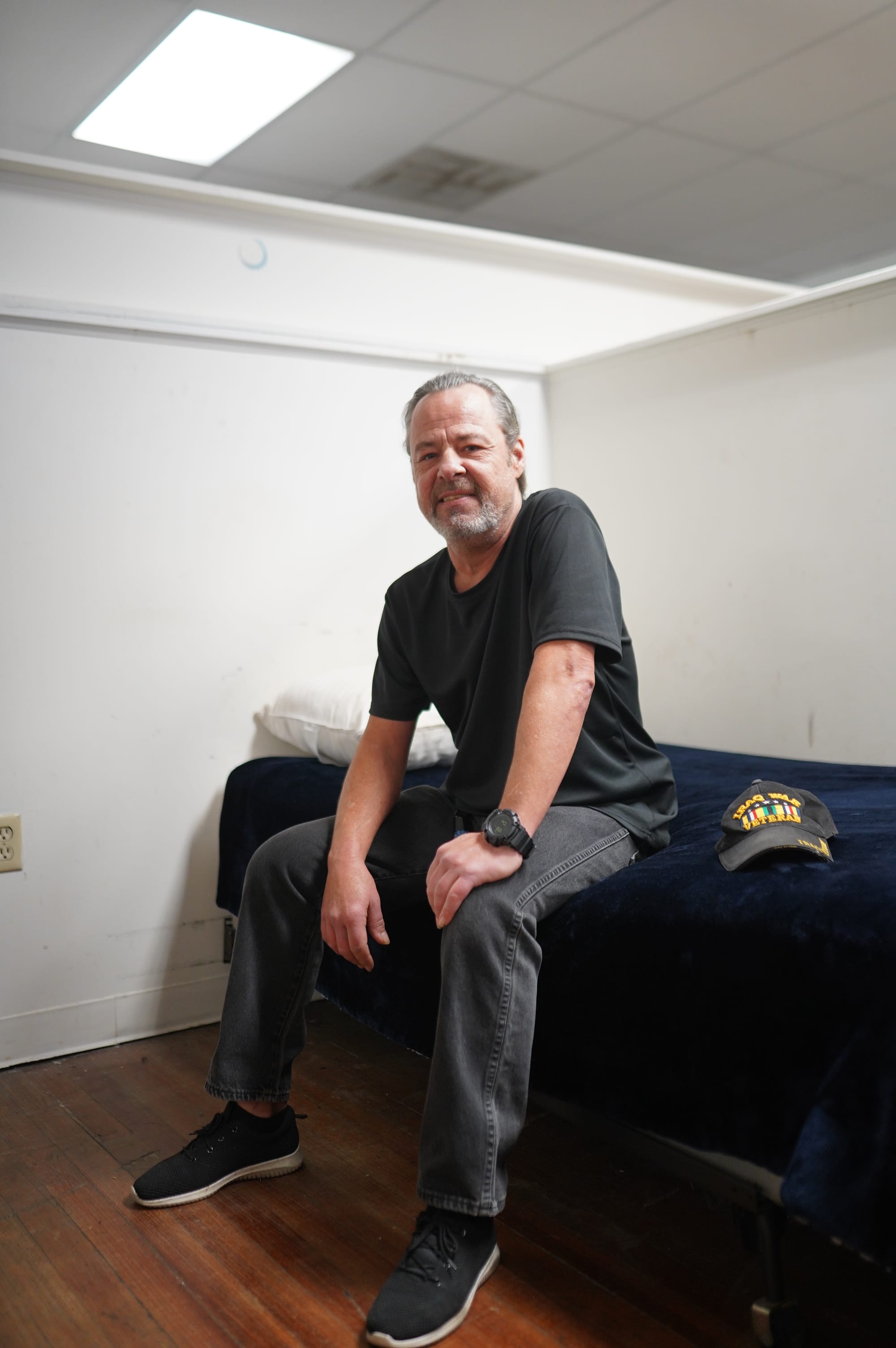
Casey Bangert, an Army vet and artillery man who served three combat tours in Iraq and Afghanistan, said he appreciates the practical help offered by LVS.
“If you want to, you can save your money. It’s a good stepping stone, a lot better than sleeping outside,” he said with a sly grin.
For Bangert, who after leaving the military worked as a civilian Defense Department employee in Italy, it’s all about finding a place to live on his own. “We have housing meetings. They’re good at explaining how things work. Good classes — finance, banking, lawyers.”
Chillee Banks, an Army vet from Charles City County, is proud to be a veteran. “We’re trained to take care of ourselves. We still have that sense of discipline. It sets you apart from guys who never trained.”
Banks is a carpenter. “I like to work with my hands. I like to build things.” He’s lived at LVS for nearly a year. Cocaine nearly did him in. But he’s over his addiction and likes to talk about his two daughters, both college graduates. He has two grandchildren, too.
“This place gives you a chance to rethink your life,” he said, “a chance to save some money. You can look at yourself and where you are in life. … If you’re ready to help yourself, they’re ready to help you here. It’s a disciplined procedure. Everybody has a role to play. If you want to come to terms with yourself and you’re a vet, this place can give you a whole new lease on life.”
The VA is the essential partner for LVS, but contributions from the community are also essential — everything from financial resources to refrigerators, meals, clothing and volunteer teachers for classes.
“We couldn’t do it without the community,” said Lynne Berkness, the chief advancement officer at LVS. “Every day, there’s something here that touches my heart. These vets fought for us. Now they need someone to fight for them.”
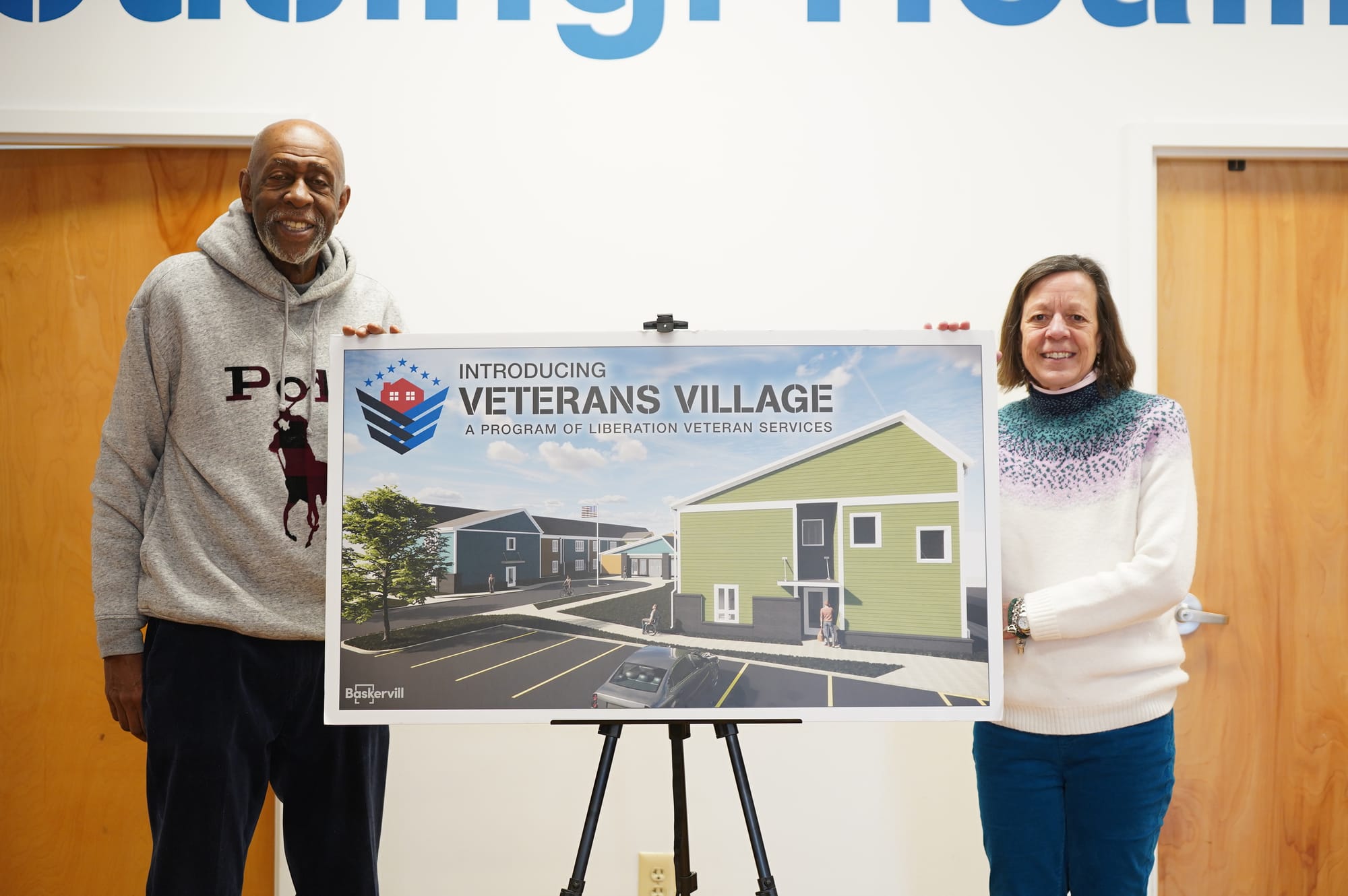
New building on the way
Liberation Veteran Services is about to make a big move. It has started construction on a new building, not too far from the old one, at 5501 Midlothian Turnpike, adjacent to Liberation Church, where Jay Patrick serves as pastor. Construction should be finished by November. The move-in date has not been decided.
The $10.6 million facility, named Veterans Village, will include micro-apartments for every veteran, so each will have a private bedroom and bathroom. The community building next door will house a kitchen, dining hall, meeting spaces and offices.
“This is elevating everything we’re doing,” Berkness said. “But the heart is still dignity and respect.”
To learn more about Liberation Veteran Services, go to lvsrva.org.



